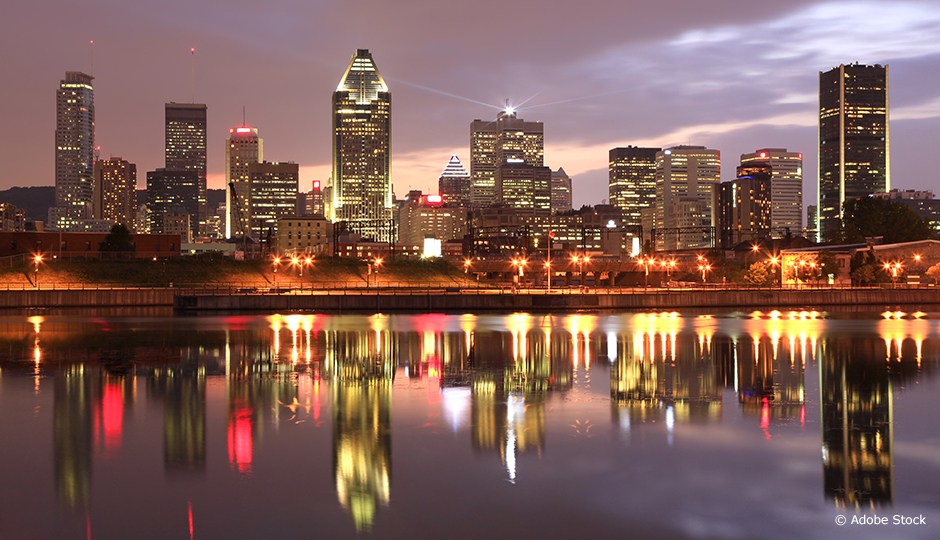Night lighting is increasing annually by 5% to 10% in industrialized cities, largely due to illuminated signs and street lights. This light pollution prevents astronomers from observing the stars and disturbs the sleep of many city dwellers. Moreover, according to the research of Master’s student Carina Poulin, under the co-supervision of Cégep de Sherbrooke laboratory techniques professor Marie-Hélène Laprise, night lighting encourages the production of chlorophyll a, a pigment involved in photosynthesis among some freshwater cyanobacteria.
Does light pollution also influence other processes?
This gives rise to the following question: does light pollution also influence other processes? Given the fact that these blue-green algae release toxins which, in high concentrations, can lead to public health concerns and restrict access to waterways, it is essential to understand their mechanisms for adaptation to nocturnal and daytime lighting.
Marie-Hélène Laprise explains that three proteins regulate the day/night cycle of cyanobacteria. In order to study the response of these proteins to night lighting, it is necessary to “see” how they are expressed in cells. Finding no existing tools for blue-green algae, the researcher decided to produce molecules called “antibodies” that “recognize” and activate the specific proteins of interest. She and the students in her course are currently working on characterizing the antibody-protein affinity.
The best antibodies will then be used in the laboratory to analyze the molecular response of cyanobacteria exposed to diurnal and nocturnal light conditions simulated using a system developed by Yannick Huot, a professor in the Department of Applied Geomatics at Université de Sherbrooke. With this research, Marie-Hélène Laprise is hoping to determine whether cyanobacteria benefit from light pollution and, if so, to have an influence on the municipal regulation of night lighting.




